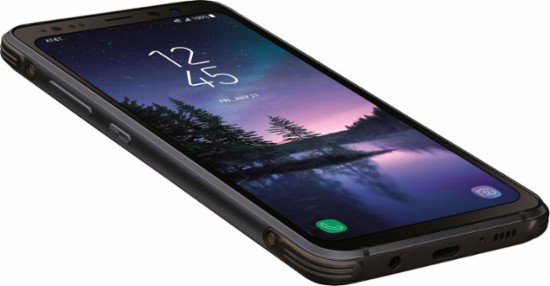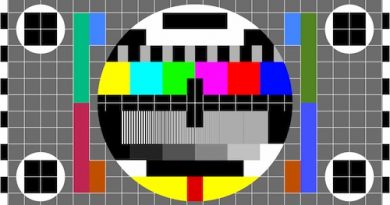Don’t force me to constantly upgrade my tech
I love technology. Let me get that out of the way right upfront.
I marvel at the advancements, the connectivity and the sheer convenience that modern devices bring to our lives. From staying in touch with loved ones across continents to accessing a world of information at my fingertips, I genuinely appreciate the incredible tools we have.
But there’s a growing frustration that bubbles up within me, a persistent sense of unease that has nothing to do with slow internet or a glitchy app. It’s about the relentless, often unspoken, demand to upgrade. I’ve come to resent the feeling that I’m constantly being pushed, prodded and even punished if I don’t jump onto the latest technological bandwagon.
It’s a familiar scenario, isn’t it? You finally get a new phone or laptop, spend days or even weeks customizing it. The wallpaper is just right, apps are perfectly organized into folders you’ve meticulously named, and the settings are tweaked to your precise preferences. Your fingers know instinctively where every icon is, your muscle memory has adapted to the keyboard layout or swipe gestures. You’ve reached a state of digital Zen, where your device feels less like an object and more like an extension of yourself. This is it, you think. This is comfort, efficiency and seamless integration.
And then, without fail, the hammer drops. A new model is announced, a new operating system is released and suddenly, your perfectly optimized setup is declared ‘out of date.’
This isn’t just about a subtle nudge; it’s a forceful shove. We’re told we need something ‘bigger, better, faster.’ But do we truly? My current phone still makes crystal-clear calls, sends messages instantly and navigates me flawlessly through traffic. It’s about three years old and when I tell the guy at the phone store his eyes practically bug out like he’s in shock — and maybe slightly offended.
My laptop handles all my work tasks, streams my favorite shows without a hiccup, and lets me connect with colleagues seamlessly. Its age? Probably seven or eight years old.
I don’t need a camera with 100 megapixels or a processor that can render cinematic CGI sequences. My existing devices serve all my practical, everyday needs admirably. Yet, the industry narrative is clear: if you’re not constantly chasing the bleeding edge, you’re falling behind. It feels less like innovation for the user’s benefit and more like planned obsolescence disguised as progress.
And then there’s the cost. Every time this upgrade cycle spins, it demands more from my wallet. It’s not just the initial purchase price, which is often substantial. It’s the accessories, the new chargers, the cases that no longer fit. This isn’t a one-time investment in a durable tool; it’s a recurring subscription to the latest model. If it was a long-term investment it might be more tolerable but knowing it’s a one- or two-year cycle frustrates the hell out of me.
What’s more, this relentless consumption creates an enormous amount of electronic waste, contributing to a global problem that few seem willing to address directly. We’re not just emptying our pockets; we’re filling landfills. Or, in my case, a box quickly filling up with phones that probably don’t even turn on anymore, let alone connect to anything.
Perhaps the most infuriating aspect of this cycle is how companies leverage software to force hardware upgrades. Your device might be physically robust, its battery still holding a decent charge, its screen unblemished. But try to download the latest version of a crucial app, or even update an “essential” existing one, and you’re often met with a stern message: ‘This app requires the latest operating system.’ And guess what? Your perfectly functional five-year-old device can’t run that operating system. It’s a carefully orchestrated maneuver – render the old software incompatible, thereby making the still-functional hardware functionally obsolete.
You’re left with a choice: forgo essential app functionality or capitulate and open your wallet for a new device you don’t actually need.
I believe we deserve a choice. We should have the option to use our electronic devices for as long as they physically function and meet our needs, without being penalized for it.
Why can’t operating systems be designed with backward compatibility in mind, offering a leaner, less resource-intensive version for older hardware? Why can’t manufacturers focus on durability and repairability, rather than pushing out minor iterations every year? This isn’t about halting technological progress; it’s about shifting the paradigm from forced consumption to sustainable utility. It’s about empowering consumers to decide when they need an upgrade, not being dictated to by a market driven by quarterly profits.
So, yes, I love my tech. But I don’t love being on this relentless upgrade treadmill.
I yearn for a future where innovation is celebrated for truly enhancing our lives, rather than for coercing us into constant expenditure. I want to live in a world where my perfectly capable device isn’t rendered obsolete by a software update, and where the choice to keep using what I have is respected, not punished.
It’s time we, as consumers, demand more than just ‘bigger, better, faster.’ We need ‘smarter, longer-lasting, and truly user-centric.’ It’s time to reclaim our right to choose how and when we upgrade, rather than being perpetually pushed to pay more for something we neither need nor necessarily want.



